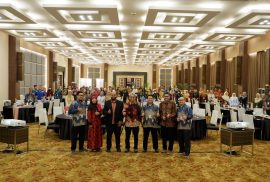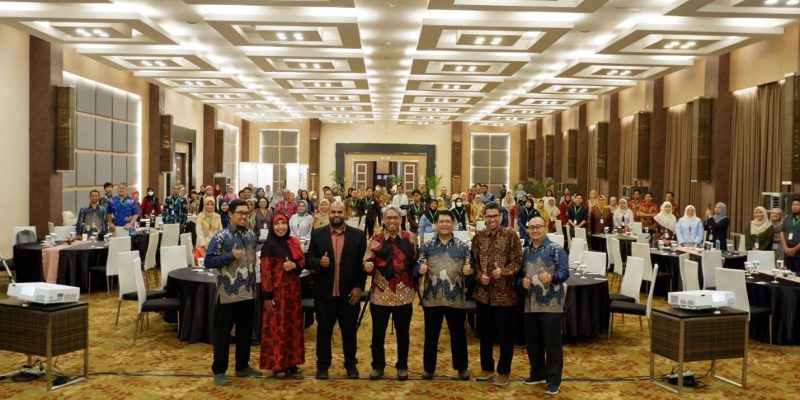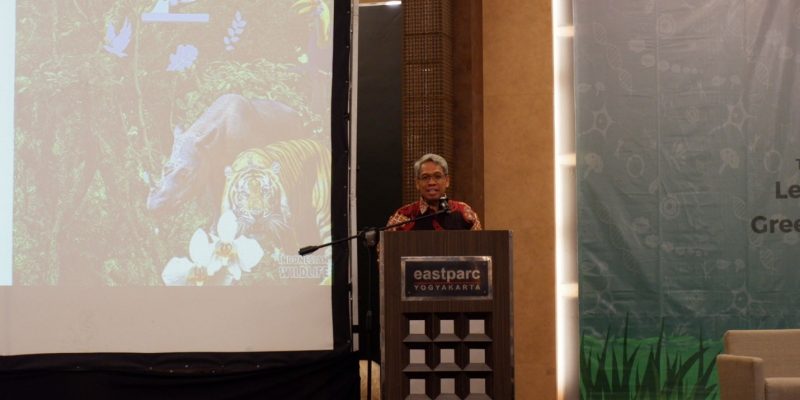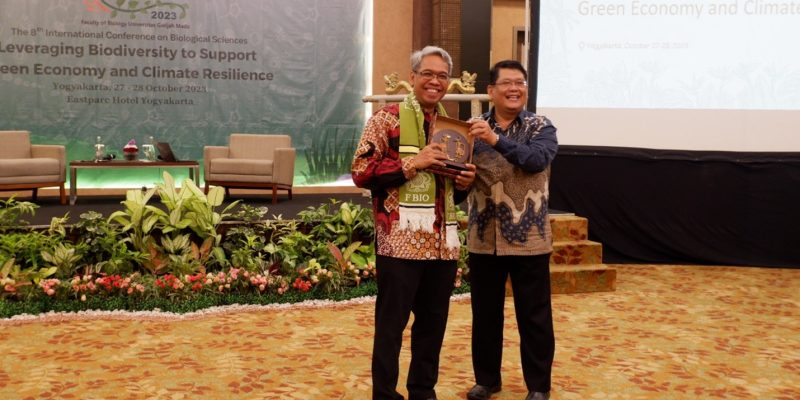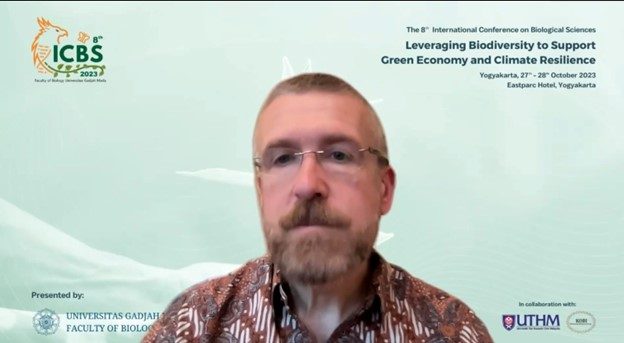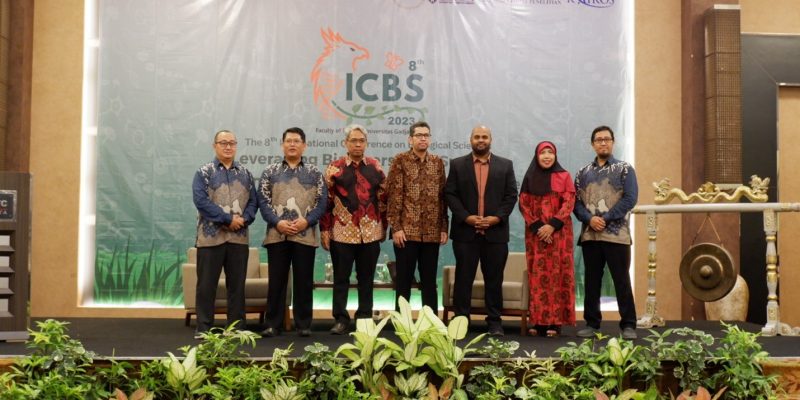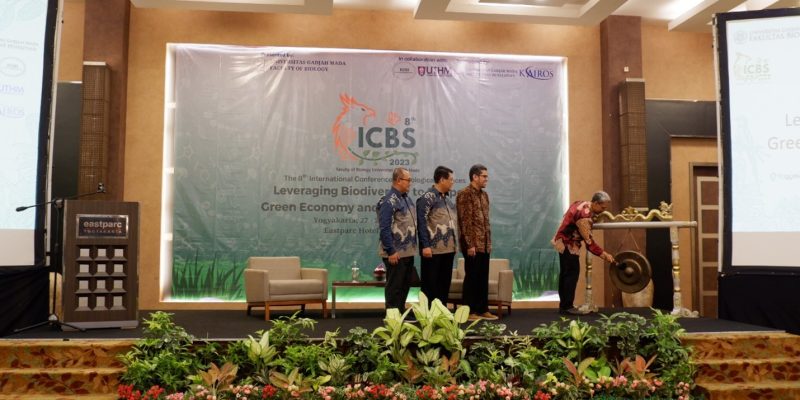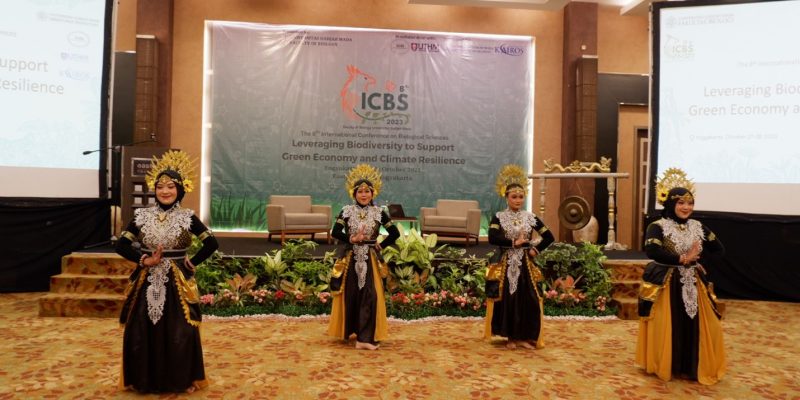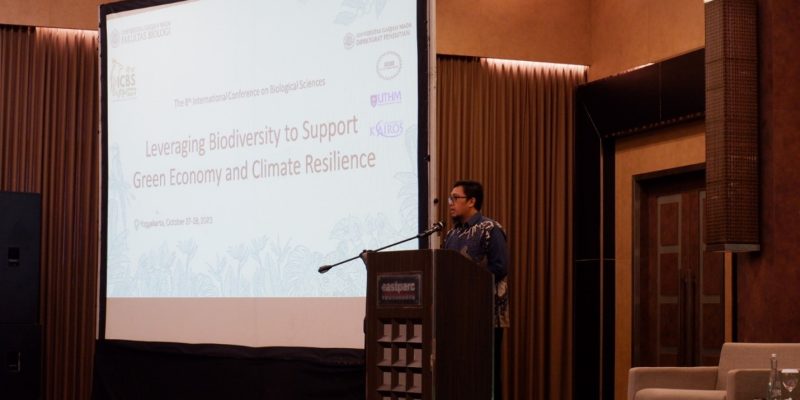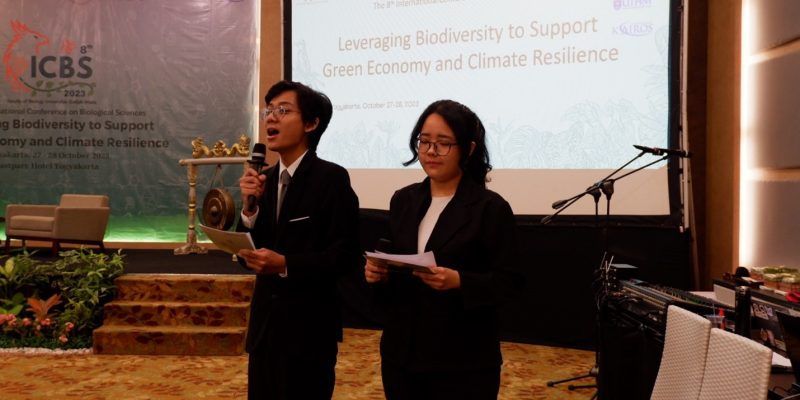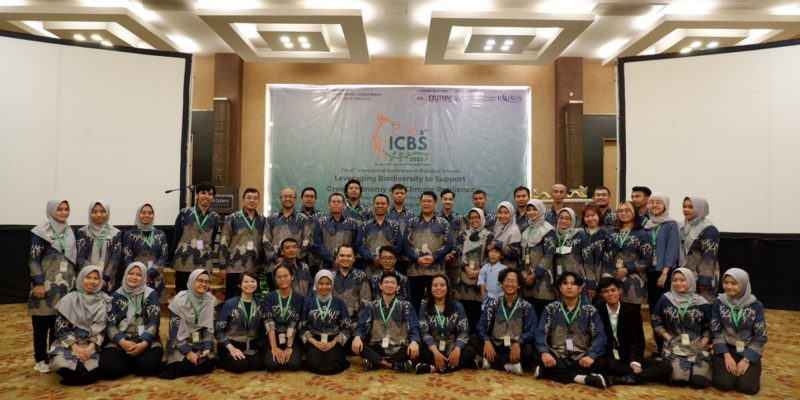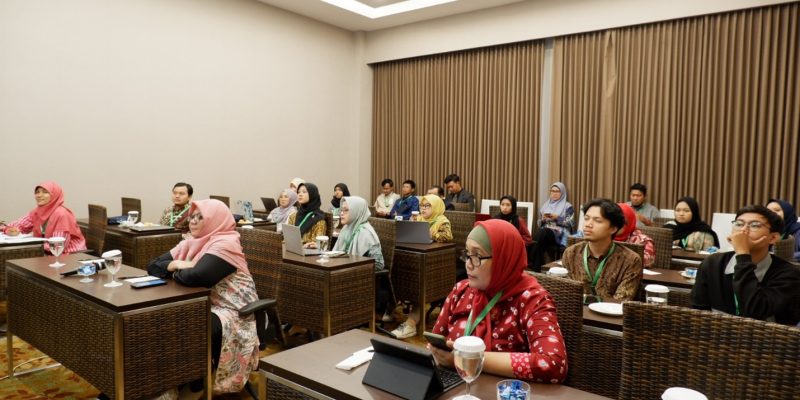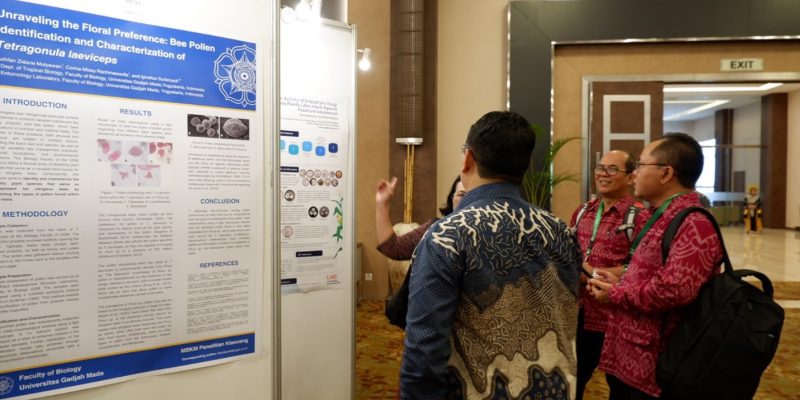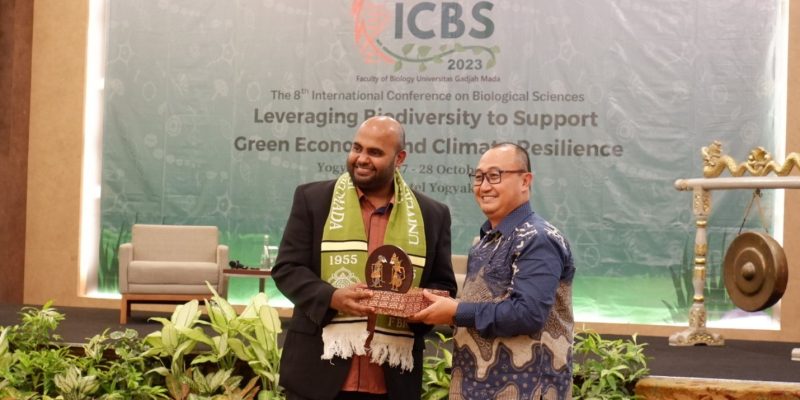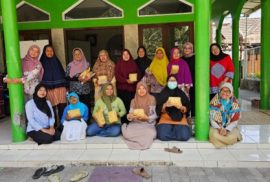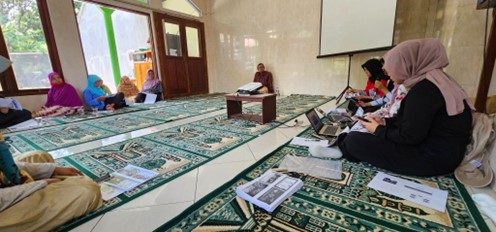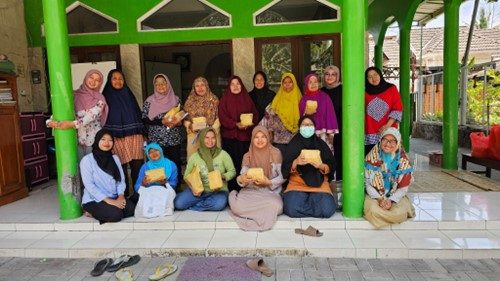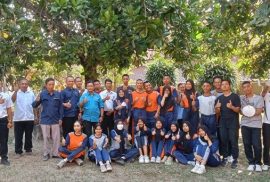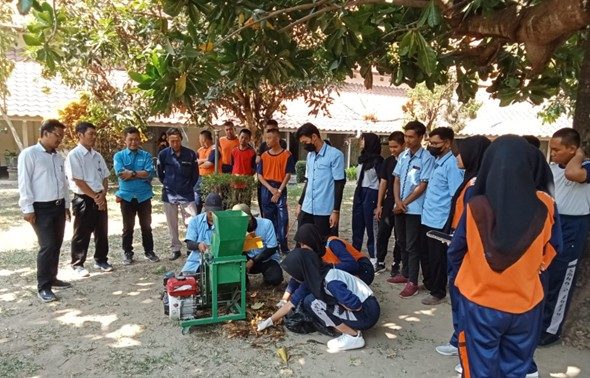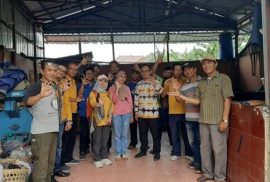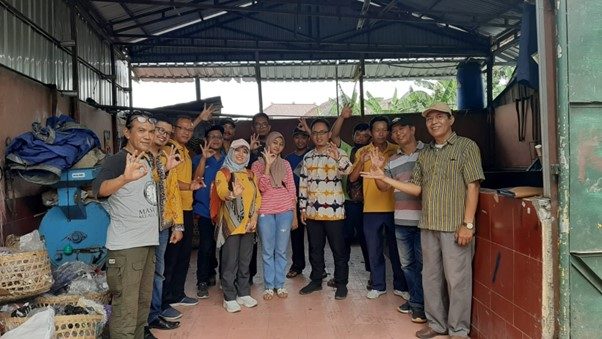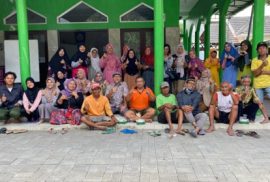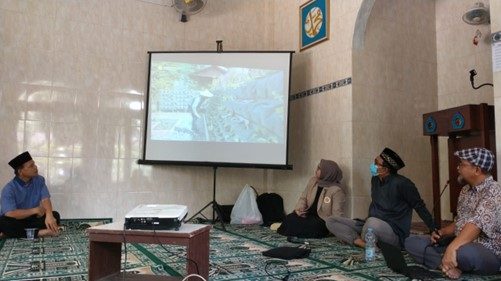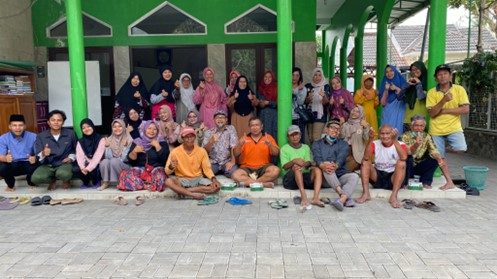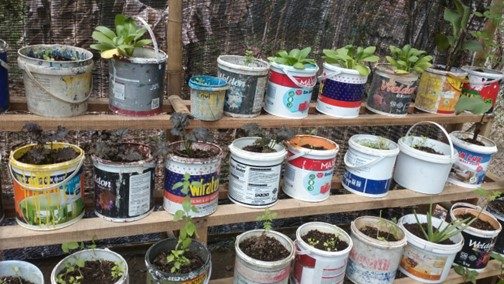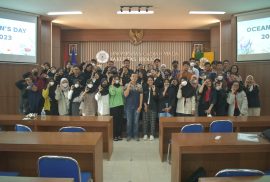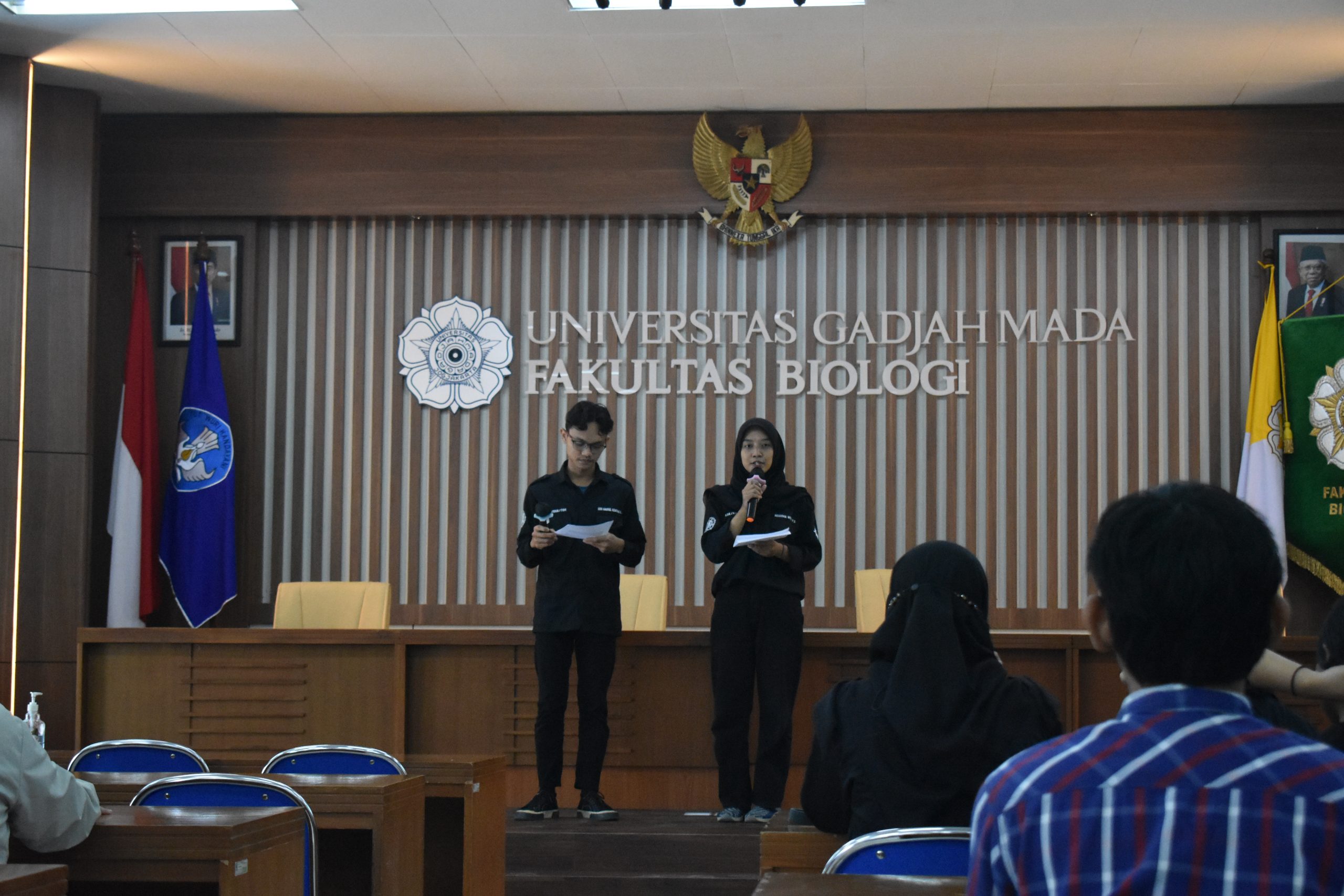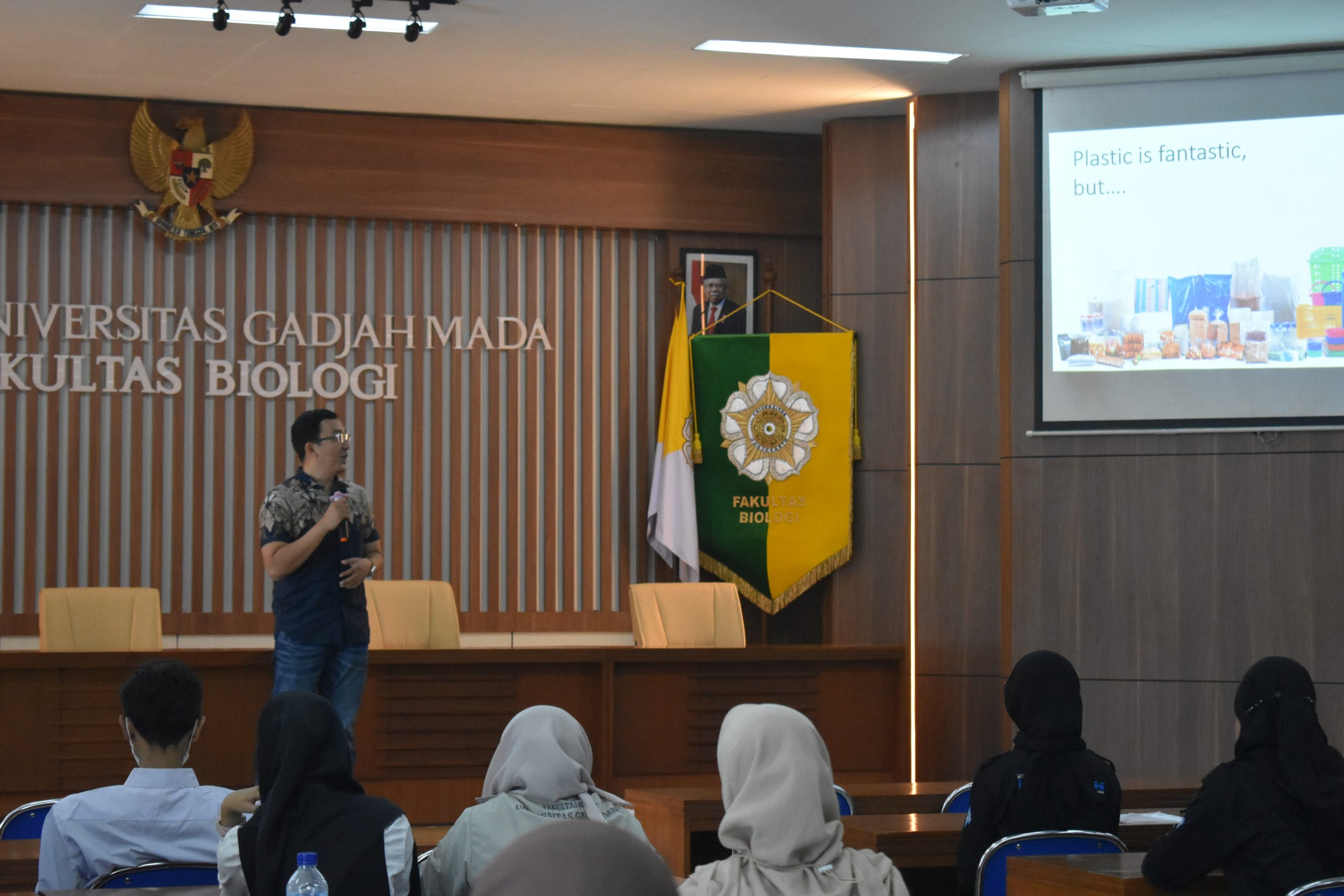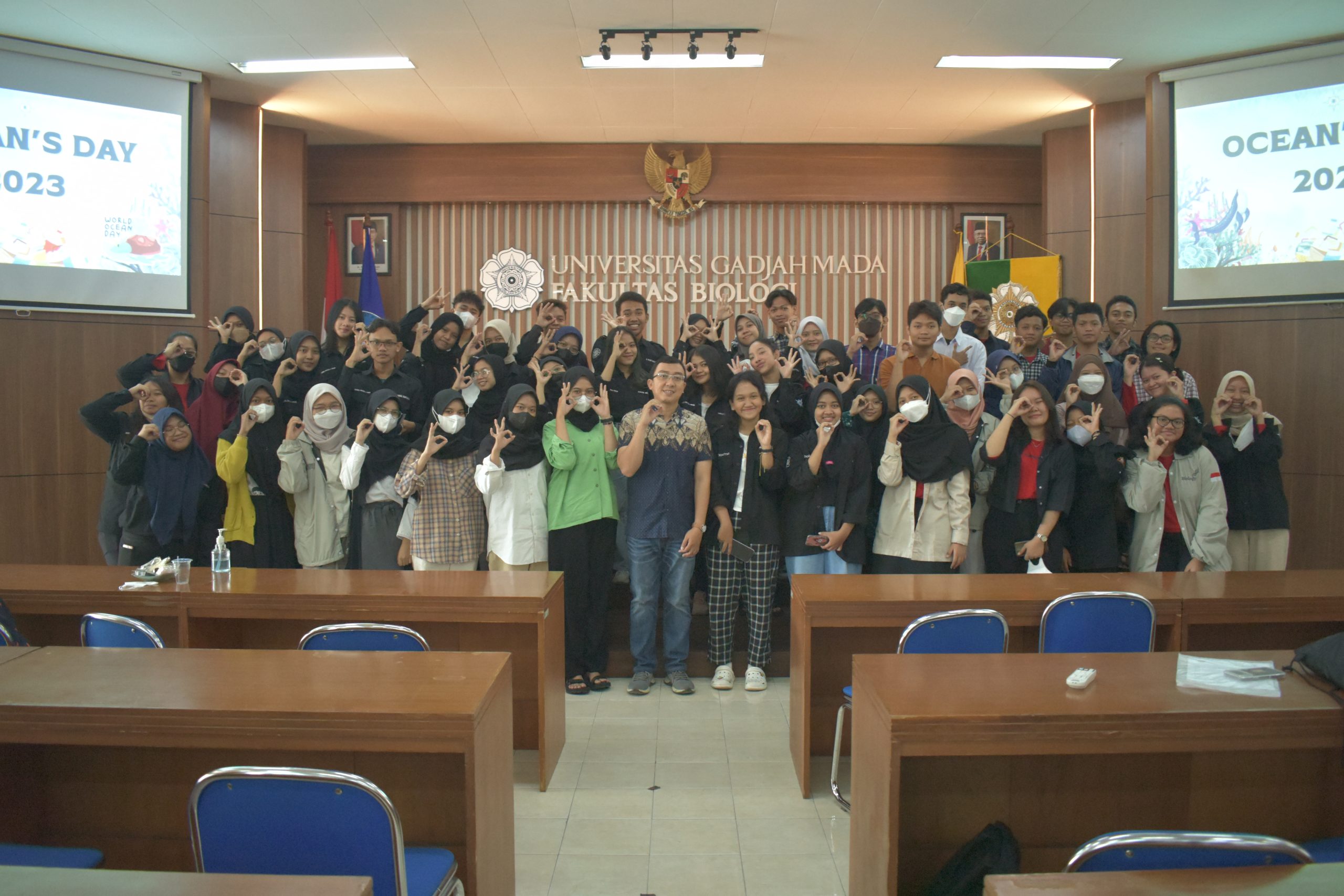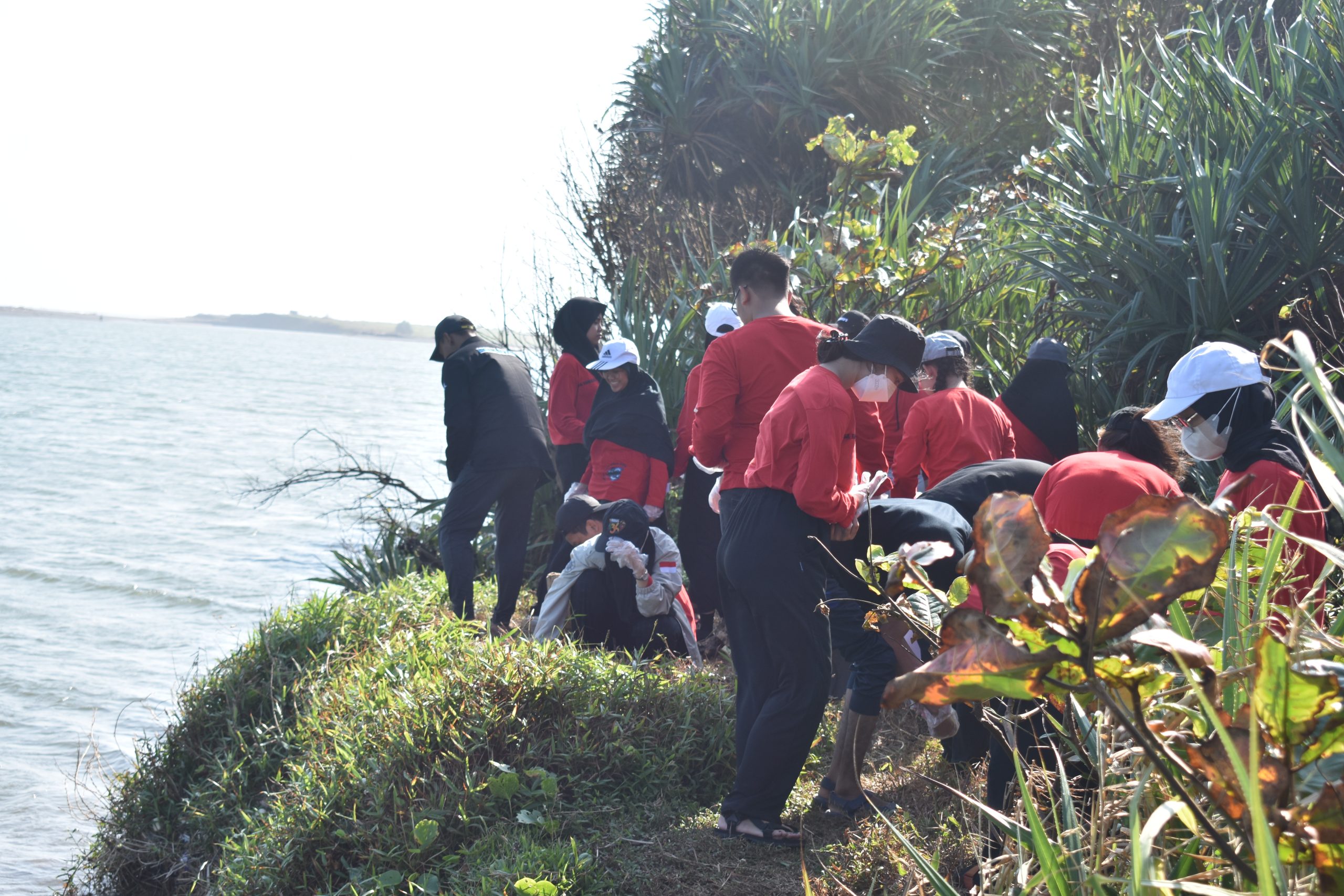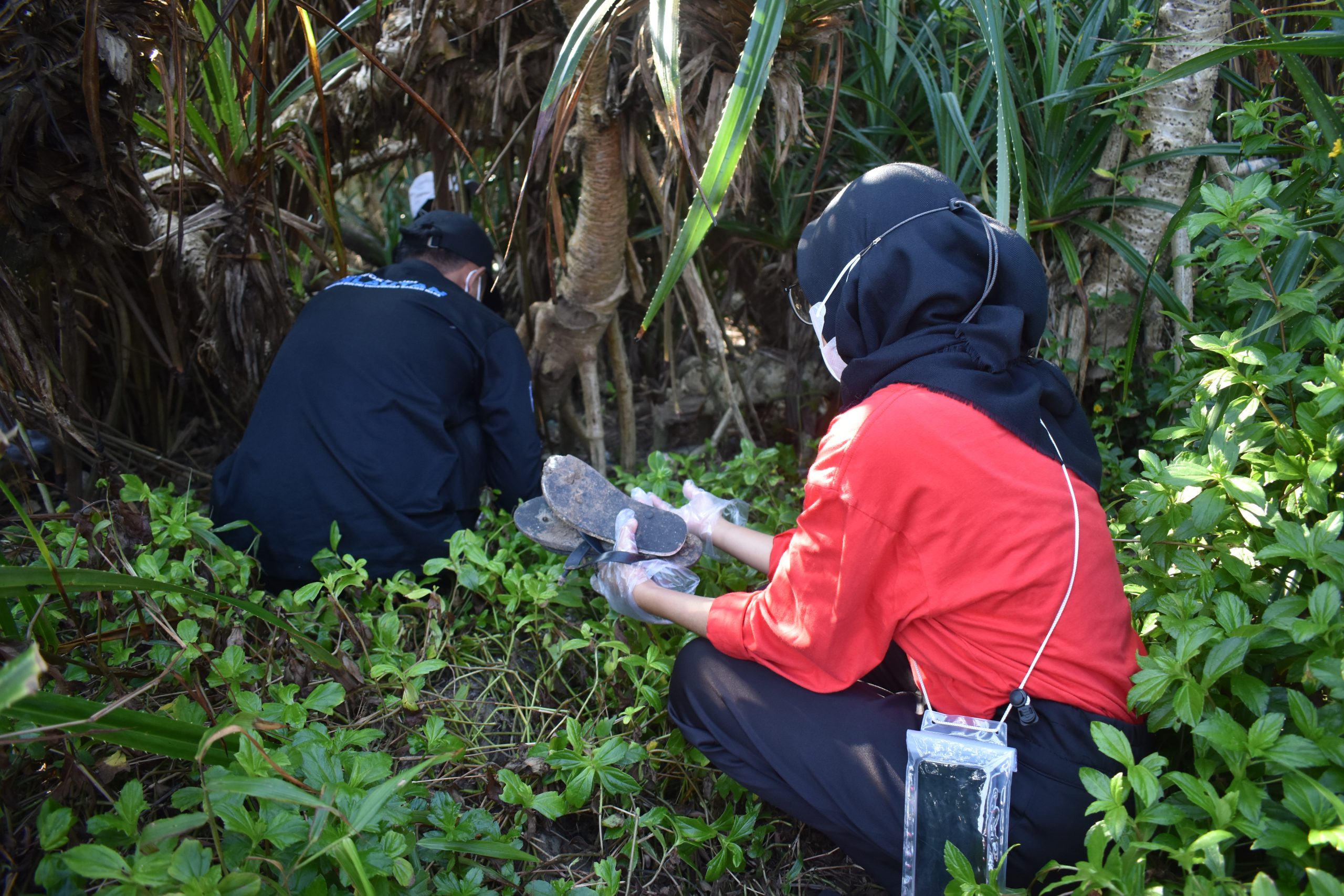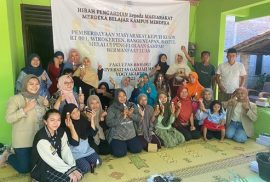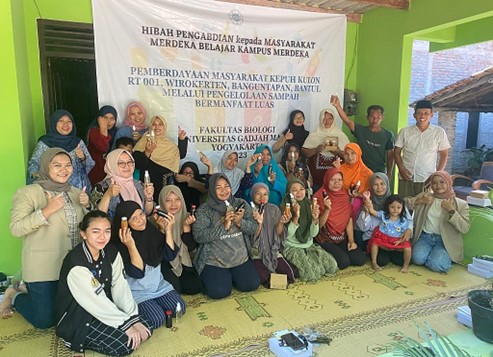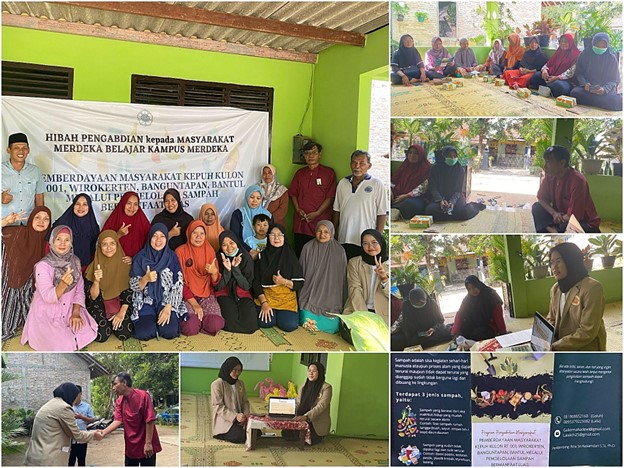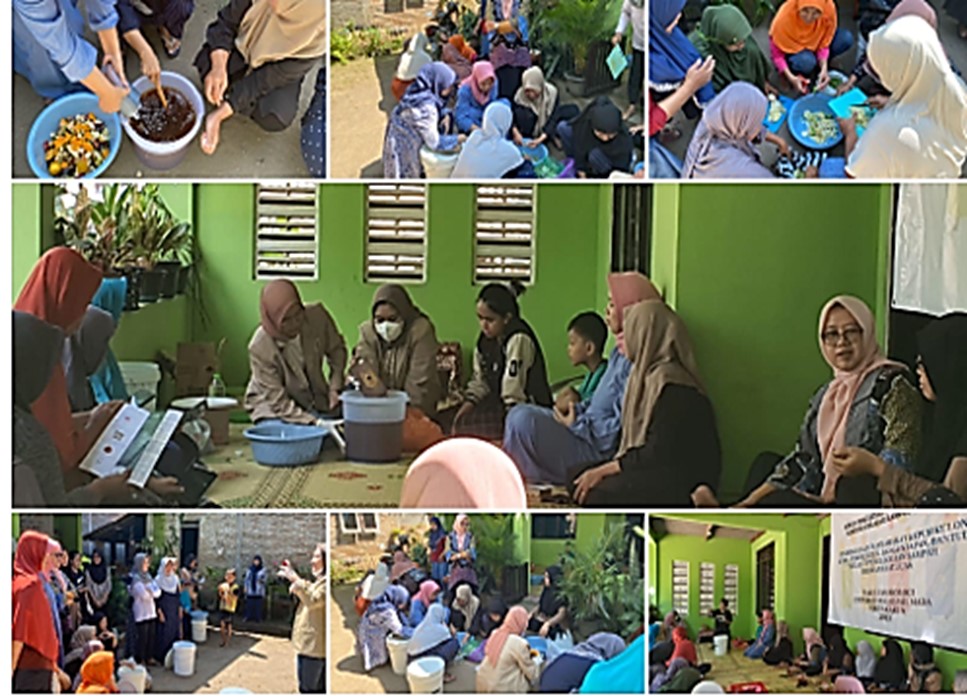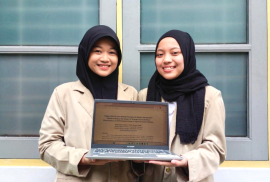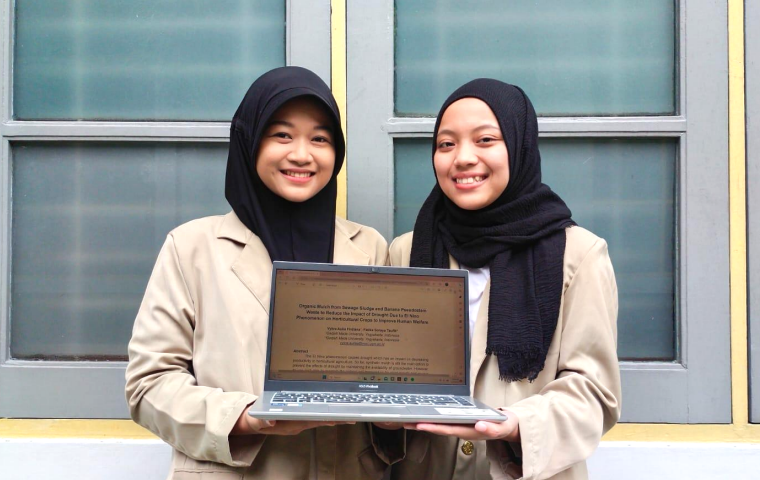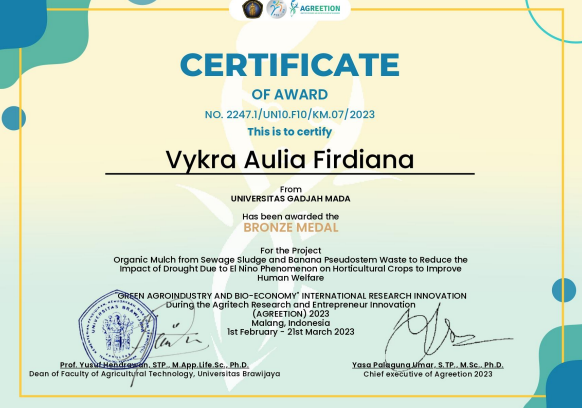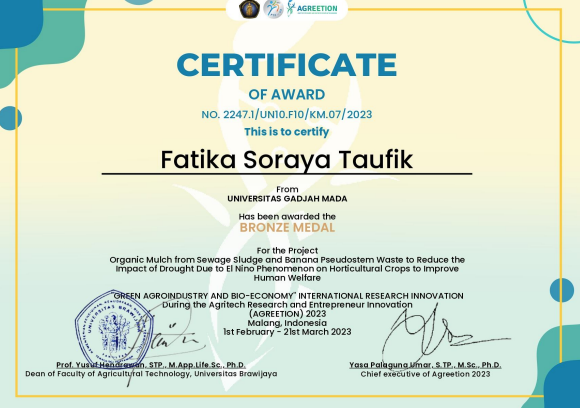Yogyakarta, 27 October 2023 – The 8th International Conference of Biological Science (ICBS) Faculty of Biology, Universitas Gadjah Mada was held again via hybrid after the previous successful event in 2021. With the theme “Leveraging Biodiversity to Support Green Economy and Climate Resilience”, ICBS was held in collaboration with Tun Hussein Onn University Malaysia (UTHM) and the Indonesian Biology Consortium (KOBI) for two days, 27 and 28 October 2023, at the Grand Ballroom of the Eastparc Hotel Yogyakarta. This conference is part of the Faculty of Biology UGM commitment to its contribution to sustainable development goals (SDGs).
The biennial conference began with a traditional dance performance “Lintang Kemukus” performed by five female students from the Faculty of Biology UGM Executive Board of Postgraduate Student. The Lintang Kemukus Dance is a traditional dance from Banyuwangi, East Java which expresses the charm of women that radiates from the beauty of their souls and is not susceptible to being weathered and lost by changing times.
“This year’s ICBS accomodated 7 topics and received more than 150 articles from the USA, India, Australia, Mexico, Malaysia, and Indonesia which were presented offline and online,” said Dr. Miftahul Ilmi, M.Si., Chair of the Committee for the 8th International Conference of Biological Science in his speech Friday (27/10). The topics include biosystematics, functional biology, biomedical, bioinformatics, genetics, bio-nanotechnology and bioengineering. Dr. Ilmi also said that the selected articles will be published in proceedings and partner journals including BIO Web of Conferences, Journal of Tropical Biodiversity and Biotechnology (JTBB), and Indonesian Journal of Biotechnology (IJBioTech) which have been indexed by Scopus and the Directory of Open Access Journals (DOAJ).
Prof. Dr. Mirwan Ushada, STP., M.App.Life.Sc., Director of Research at UGM was also present at the opening of ICBS 2023. He conveyed the urgency of preserving biodiversity and how it is closely related to food security and the medical world. In his speech, Prof. Mirwan also revealed the contribution of technology in the development of science through Artificial Intelligence (AI). He hopes that this conference can become a forum for gathering and sharing knowledge and ideas to create a sustainable future.
“This conference aims to be a gathering place for scientists, policy makers and academics to share various information and experiences in the realization of sustainable science, especially understanding biodiversity conservation and resilience to current climate change,” Prof. Dr. Ir. Sri Suning Kusumawardani, S.T., M.T., Director of Learning and Student Affairs, Ministry of Education, Culture, Research and Technology, then gave his welcoming speech for ICBS 2023.
“Through this conference, we hope to be able to explore deeply how to use biodiversity to build a sustainable economy and build resilience to climate change. We also hope that all participants can contribute to discussions, collaboration and share insights in understanding related to biodiversity conservation and utilization,” said Prof. Dr. Budi Setiadi Daryono, M.Agr.Sc. in his speech. Together with Prof. Dr. Satyawan Pudyatmoko from the Ministry of Environment and Forestry of the Republic of Indonesia, Prof. Mirwan, and Dr. Eko as Vice Dean for Research, Community Service, Collaboration and Alumni Affairs, Prof. Budi opened the conference by striking the gong three times.
The keynote speaker at the 8th International Conference of Biological Science this time was delivered by Prof. Dr. Satyawan Pudyatmoko, Director General of Natural Resources and Ecosystem Conservation, Ministry of Environment and Forestry of the Republic of Indonesia. Prof. Satyawan conveyed how humans contribute significantly to the earth’s climate conditions and anthropogenic climate change also affects the structure and function of ecosystems which indirectly causes a decline in human welfare. He highlighted the importance of establishing conservation areas and land protection as well as biodiversity management as important steps to address climate change.
Assoc. Prof. Ts. Dr. Muhammad Abdul Latiff from Universiti Tun Hussein Onn Malaysia, was also invited to be a speaker at ICBS this time. He gave a presentation entitled “Primate-Based Tourism: Fostering Biodiversity Conservation and Empowering local Communities through Green Economy”. He highlighted the importance of synergy between primate-based tourism and community-based conservation (CBC), which is an effort to increase conservation as well as empower local communities for sustainable development.
The next keynote speaker is Assoc. Prof. Dr. Michael Sauer, Head of Department of Biotechnology OMV AG from the University of Natural Resources and Life Science, BOKU, Austria. Dr. Michael presented on microbial culture for sustainable chemical production. Dr. Michael highlighted the limitations in fuel and chemical production due to limited resources and climate change. A microbial fermentation process that converts plant biomass and waste as a source of chemical production.
The 8th International Conference of Biological Science is expected to become a forum for communication and sharing for researchers to collaborate and innovate to develop biodiversity-based sustainable development. This is in line with contributions to increasing science and inclusive education (SDG 4), especially in developing biodiversity conservation (SDG 14 and 15) and handling climate change (SDG 13) through sustainable partnerships (SDG 17).

